Strongmen’s Weaponization of Anti-Money Laundering Measures: A Global Threat to Charities and Civil Society
In the Philippines, members of a charitable organization, the Community Empowerment Resource Network (CERNET), have been charged with bankrolling communist rebels, despite their work supporting indigenous communities and disaster relief efforts. This case highlights a troubling trend where authoritarian leaders are exploiting anti-money laundering regulations to suppress civil society and dissent, both at home and abroad.
Uncovering the Abuse of Anti-Terrorism Laws to Target Charitable Organizations
The crackdown on CERNET is not an isolated incident. Across the Philippines, other charities that support small-scale farmers and provide disaster relief have also had their leadership charged and accounts frozen under the country’s draconian Anti-Terrorism Act, passed in 2020. These actions, ostensibly aimed at combating terrorism and money laundering, have instead become a tool for strongmen to silence and undermine organizations that challenge their power.
The Weaponization of Global Anti-Money Laundering Directives
The root of this problem lies in the Financial Action Task Force (FATF), an international body established in 1989 to combat money laundering and terrorist financing. While FATF’s original mandate was to address the illegal drug trade, it has since expanded its scope to encompass all forms of illicit finance. FATF now recommends a range of measures, such as blocking suspicious funds and monitoring dubious groups, which countries are expected to implement domestically.However, the very directives intended to curb criminal activity have created opportunities for large-scale abuse by authoritarian leaders. LexisNexis, a data firm, reports that over 130,000 entities have been accused, either by governments or the media, of money laundering. Of these, around 30,000 have had their assets frozen, a significant increase from the previous year.
The Expanding Reach of Financial Suppression
The problem extends beyond national borders, as strongmen are becoming increasingly creative in wielding their tools of financial suppression. By leveraging international anti-money laundering frameworks, they can target not only domestic organizations but also charities and civil society groups operating abroad. This tactic allows them to stifle dissent and undermine the work of these organizations, even in countries where they do not hold direct political power.The case of CERNET in the Philippines is a prime example of this trend. The organization’s associates, such as Estrella Flores-Catarata, have been charged and had their assets frozen, despite their work being recognized by the United Nations for its positive impact on indigenous communities. This demonstrates how authoritarian leaders are exploiting global financial regulations to suppress civil society and consolidate their control, both within their own borders and on the international stage.
The Urgent Need for Accountability and Reform
The weaponization of anti-money laundering measures against charities and civil society organizations poses a grave threat to democratic values and the rule of law. It undermines the ability of these groups to operate freely and effectively, depriving vulnerable communities of vital support and services.To address this issue, there is a pressing need for greater accountability and reform within the global financial regulatory framework. FATF and its member countries must ensure that their directives and implementation are not being abused by authoritarian regimes to target legitimate organizations. Robust safeguards and oversight mechanisms must be put in place to prevent the misuse of these tools for political suppression.Moreover, civil society organizations and international human rights bodies must continue to shine a spotlight on these abuses, advocating for the protection of fundamental freedoms and the rights of charities to operate without fear of reprisal. Only through concerted efforts to uphold the integrity of the global financial system and the principles of democracy can we effectively counter the strongmen’s weaponization of anti-money laundering measures.
